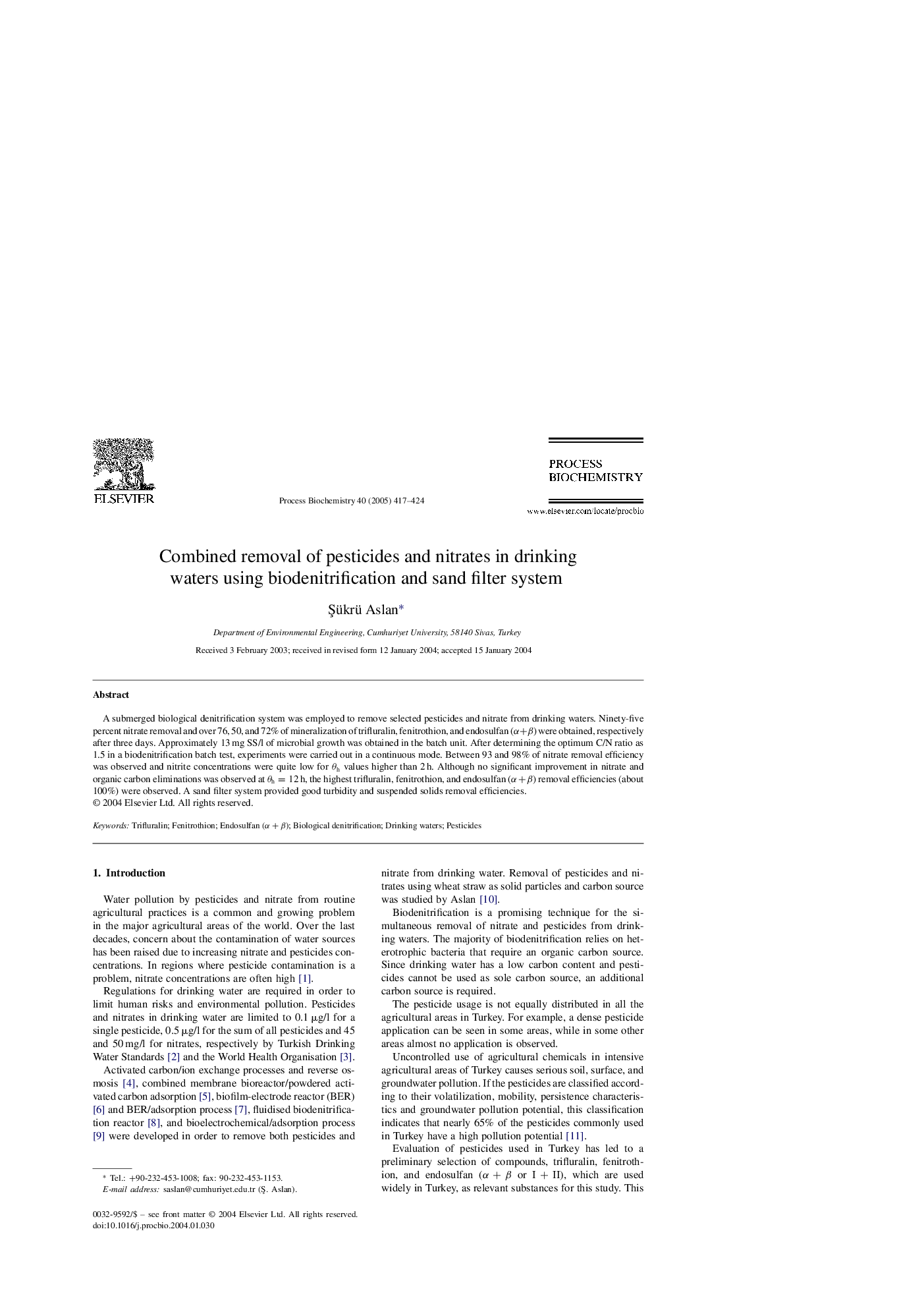| Article ID | Journal | Published Year | Pages | File Type |
|---|---|---|---|---|
| 10236218 | Process Biochemistry | 2005 | 8 Pages |
Abstract
A submerged biological denitrification system was employed to remove selected pesticides and nitrate from drinking waters. Ninety-five percent nitrate removal and over 76, 50, and 72% of mineralization of trifluralin, fenitrothion, and endosulfan (α+β) were obtained, respectively after three days. Approximately 13 mg SS/l of microbial growth was obtained in the batch unit. After determining the optimum C/N ratio as 1.5 in a biodenitrification batch test, experiments were carried out in a continuous mode. Between 93 and 98% of nitrate removal efficiency was observed and nitrite concentrations were quite low for θh values higher than 2 h. Although no significant improvement in nitrate and organic carbon eliminations was observed at θh=12 h, the highest trifluralin, fenitrothion, and endosulfan (α+β) removal efficiencies (about 100%) were observed. A sand filter system provided good turbidity and suspended solids removal efficiencies.
Related Topics
Physical Sciences and Engineering
Chemical Engineering
Bioengineering
Authors
Åükrü Aslan,
